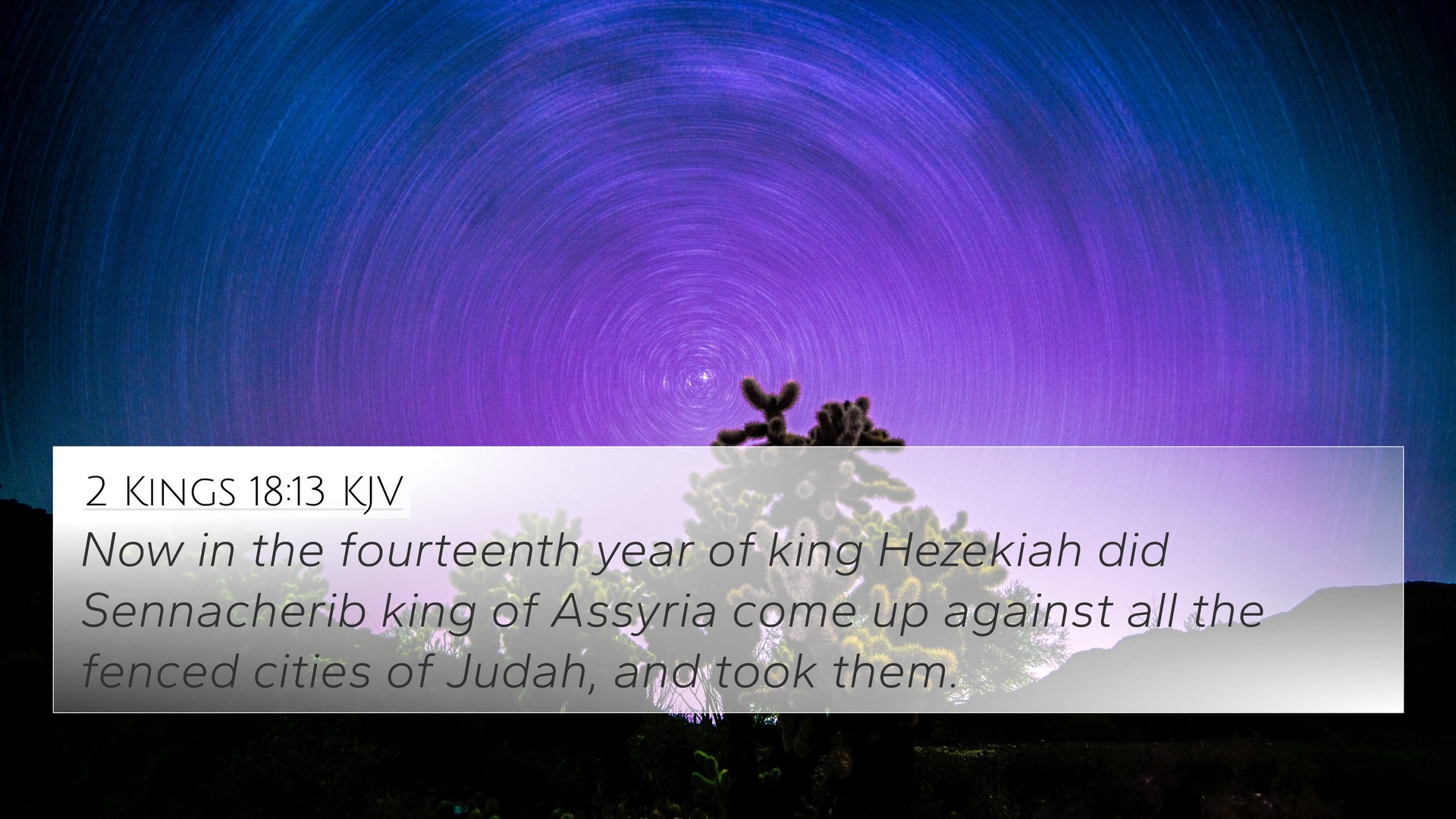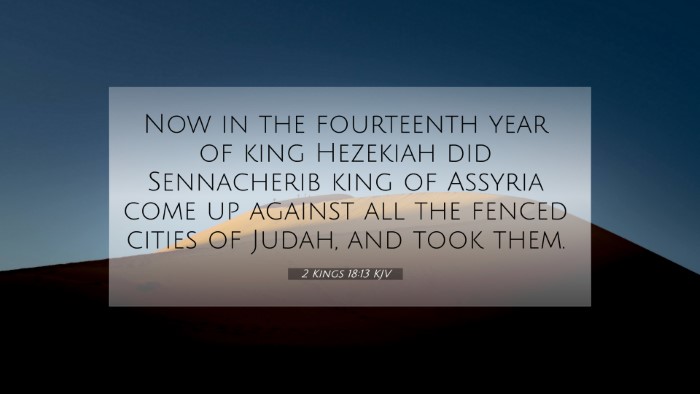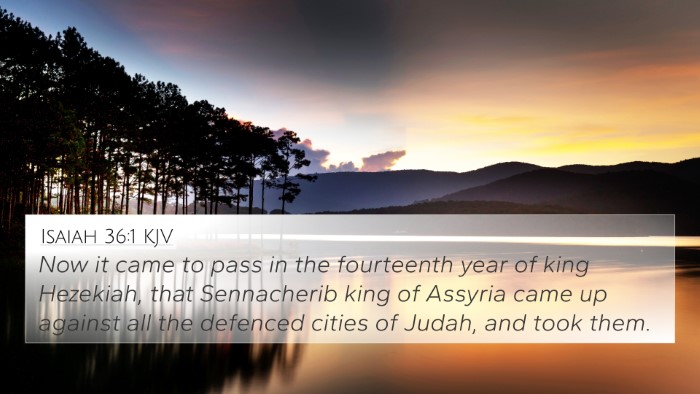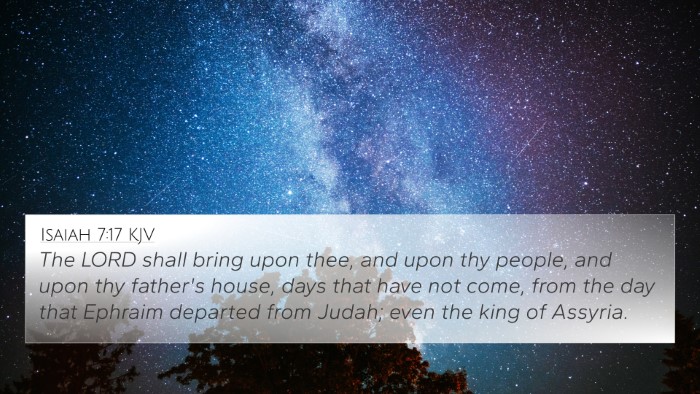Understanding 2 Kings 18:13
Bible Verse: 2 Kings 18:13
In this verse, we see a critical moment during King Hezekiah's reign in Judah. The context revolves around the Assyrian king Sennacherib's campaign against Jerusalem, showcasing the tension and fear faced by God's people. This verse sets the stage for understanding the significant events that followed, including the faithfulness of Hezekiah and the Lord's deliverance.
Verse Analysis
According to Matthew Henry's Commentary, this verse illustrates the aggression of Sennacherib as he sends troops against Judah. It serves to highlight the weakness of human resistance against overwhelming odds without divine support. Henry emphasizes that the mention of the Assyrian king's actions serves as a reminder of God’s power to save, even in desperate times.
Albert Barnes offers insights into the historical context, indicating that this was part of Sennacherib’s campaign to assert dominance over vulnerable nations. His commentary suggests that the narrative is not only historical but serves as a theological lesson about reliance on God rather than military strength.
Adam Clarke points to the symbolic implication of the Assyrian threat. He notes the spiritual warfare that is at play, where the nation is tested on its faithfulness to God. Clarke argues that this verse underscores the importance of recognizing the true source of deliverance, which lies in faith and obedience to the Lord.
Thematic Connections
This verse opens up several themes relevant to not only the historical context of Judah but also to broader Biblical narratives:
- Faith under Pressure: The stand of King Hezekiah against Sennacherib aligns with themes of faith amidst adversity, which can be cross-referenced with Isaiah 36 and Isaiah 37.
- God's Deliverance: The promise of deliverance in dire situations can be reflected in Psalms 46:1, where God is described as a refuge in times of trouble.
- Divine Sovereignty: God's sovereignty over nations, as seen in this verse, echoes through Isaiah 14:24-27, which speaks to the fallen state of the Assyrian Empire.
- Human Weakness: The very notion of relying on God instead of military might resonates with Zechariah 4:6, "Not by might, nor by power, but by my Spirit," reinforcing divine sufficiency.
- Prayer and Intercession: The importance of prayer during troubled times can be seen in Hezekiah’s later actions, mirrored in 2 Chronicles 32.
- The Role of a Leader: The leadership qualities of King Hezekiah become a study of righteousness and faith, which can be paralleled with 1 Timothy 3:1-7 regarding qualities suitable for leaders.
- Covenantal Promises: The ongoing fulfillment of God’s promises to His people offers a thematic link to Exodus 34:24, regarding God’s protection over Israel.
Cross-References
Here are some significant Bible cross-references connected to 2 Kings 18:13:
- Isaiah 36:1-3 - The detailed account of Sennacherib's campaign against Jerusalem.
- Isaiah 37:14-20 - Hezekiah's prayer for deliverance.
- 2 Chronicles 32:1-23 - A parallel account of the Assyrian siege.
- 2 Kings 19:32-36 - God's promise of deliverance from Sennacherib.
- Psalms 124:2-3 - A reflection on God as the protector of His people.
- Jeremiah 17:5-8 - A contrast between trusting in man and trusting in God.
- Luke 18:1-8 - A New Testament perspective on the importance of persistent prayer.
Conclusion
The significance of 2 Kings 18:13 extends beyond its historical context to embody timeless principles of faith, divine intervention, and the importance of relying on God's strength in the face of overwhelming challenges. Through scriptural cross-referencing, one can explore how these themes resonate throughout the Bible, highlighting the interconnectedness of God’s message across both the Old and New Testament.








